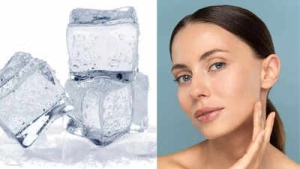Dengue fever, spread by Aedes mosquitoes, is a rising global health issue, causing high fever, severe joint pain, and extreme fatigue. With no specific cure available, prevention and supportive care are key. Neem (Azadirachta indica), a medicinal tree native to the Indian subcontinent, has long been used in traditional remedies for its antiviral, anti-inflammatory, and mosquito-repelling properties. Recent studies suggest neem may offer multiple benefits in the fight against dengue, from helping block virus replication and supporting immune function, to naturally repelling mosquitoes. Its accessibility and effectiveness make it a promising complementary tool in managing and preventing dengue.
Study finds how neem leaf can help treat dengue virus
A study published in PubMed found that neem leaves might help stop the dengue virus from spreading in the body. In lab tests, a water-based extract of neem leaves completely blocked the dengue virus type-2 from growing in infected cells, and it didn’t harm the cells either.
When the same neem extract was tested on mice, it prevented them from showing any signs of dengue, and no virus was found in their blood. This shows that neem could be helpful in fighting dengue, but more research is needed to understand how it works in humans.
Neem supports the body during dengue fever
While neem is not a cure for dengue, it may support the body in managing symptoms and speeding up recovery. Neem leaves are packed with natural compounds like nimbin and nimbidin, which have shown potential to reduce inflammation, boost immunity, and possibly improve platelet count, an important factor in dengue recovery. Some traditional practices involve drinking neem-infused water or neem tea to manage fever and help the body detox.
Health benefits of neem that support dengue prevention and recovery
- Natural immunity booster: Neem contains compounds like nimbin and nimbolide that help strengthen the immune system, which is essential during and after a dengue infection.
- Anti-inflammatory properties: Neem helps reduce inflammation in the body, which can ease joint and muscle pain commonly associated with dengue fever.
- Antiviral action: As mentioned in research, neem leaf extract may help block dengue virus replication, offering a potential line of defence at the cellular level.
- Supports platelet count: Though more studies are needed, traditional use suggests neem might assist in improving platelet levels, which are often low in dengue patients.
- Detoxifying effect: Neem is considered a natural blood purifier. Drinking neem-infused water or tea may help cleanse the system and speed up recovery.
- Skin relief: Neem water or paste can also soothe dengue-related rashes or itching, thanks to its antimicrobial and cooling properties.
Neem leaves and dengue: A natural remedy for immunity and recovery
Prevention is key when it comes to dengue, and neem plays an important role here too. Neem oil is known to be a natural mosquito repellent. Studies show that applying neem oil (usually mixed with coconut oil) on the skin can repel mosquitoes for up to 12 hours, making it a chemical-free alternative to commercial repellents.
Some households even burn dried neem leaves or use neem-based sprays to keep mosquitoes away from living spaces. These practices, while simple, can make a big difference in areas where dengue is common.
How to use neem safely at home
Neem Use
| Purpose
| How to Use
|
Neem tea or boiled neem water
| May support immunity and reduce fever
| Boil 5–6 fresh neem leaves in water, let it cool, and drink once a day (not on an empty stomach)
|
Neem oil repellent
| Protects against mosquito bites
| Mix 2% neem oil with coconut oil and apply to exposed skin before going outdoors
|
Neem leaf bath
| Soothes fever and skin irritation
| Add boiled neem leaves to bathwater and soak for 10–15 minutes
|
Neem water in containers
| Kills mosquito larvae
| Add diluted neem oil to stagnant water in flower pots, coolers, and drains
|
Burn dried neem leaves
| Repels mosquitoes in the home
| Burn a few dry leaves in a safe, ventilated area (like a veranda) in the evening
|
Cold showers for heart health: Know the benefits, risks, and other wellness advantages
 Daren Sammy Fined, Handed Demerit Point for Umpire Criticism After Test Match Comments
Daren Sammy Fined, Handed Demerit Point for Umpire Criticism After Test Match Comments
 Gavaskar Calls for Yadav's Inclusion, Questions Middle Order After India's Test Defeat
Gavaskar Calls for Yadav's Inclusion, Questions Middle Order After India's Test Defeat
 Decoding Your Health: Spotting 5 Prediabetes Warning Signs Before a Blood Test
Decoding Your Health: Spotting 5 Prediabetes Warning Signs Before a Blood Test
 Headline:
Early Warning Signs: 5 Heart Attack Symptoms to Watch Out For Weeks in Advance
Headline:
Early Warning Signs: 5 Heart Attack Symptoms to Watch Out For Weeks in Advance
 Facial Icing: Benefits, Risks, and Safe Application of This Viral Beauty Trend
Facial Icing: Benefits, Risks, and Safe Application of This Viral Beauty Trend
 Akmal Blasts PCB's Interim Coach Choice: Ex-Cricketer Questions Logic Behind Mahmood Appointment
Akmal Blasts PCB's Interim Coach Choice: Ex-Cricketer Questions Logic Behind Mahmood Appointment
 Chess Sensation Praggnanandhaa Joins Magnus Carlsen's Team Liquid for Esports World Cup
Chess Sensation Praggnanandhaa Joins Magnus Carlsen's Team Liquid for Esports World Cup
 MI New York's Tajinder Dhillon Shines: From IPL Benchwarmer to MLC Star
MI New York's Tajinder Dhillon Shines: From IPL Benchwarmer to MLC Star
 X Corp. Cracks Down: Half a Million Indian Accounts Suspended for Policy Breaches
X Corp. Cracks Down: Half a Million Indian Accounts Suspended for Policy Breaches
 Mastering JPG to PDF Conversion: A Graphic Designer's Guide to Quality and Efficiency
Mastering JPG to PDF Conversion: A Graphic Designer's Guide to Quality and Efficiency